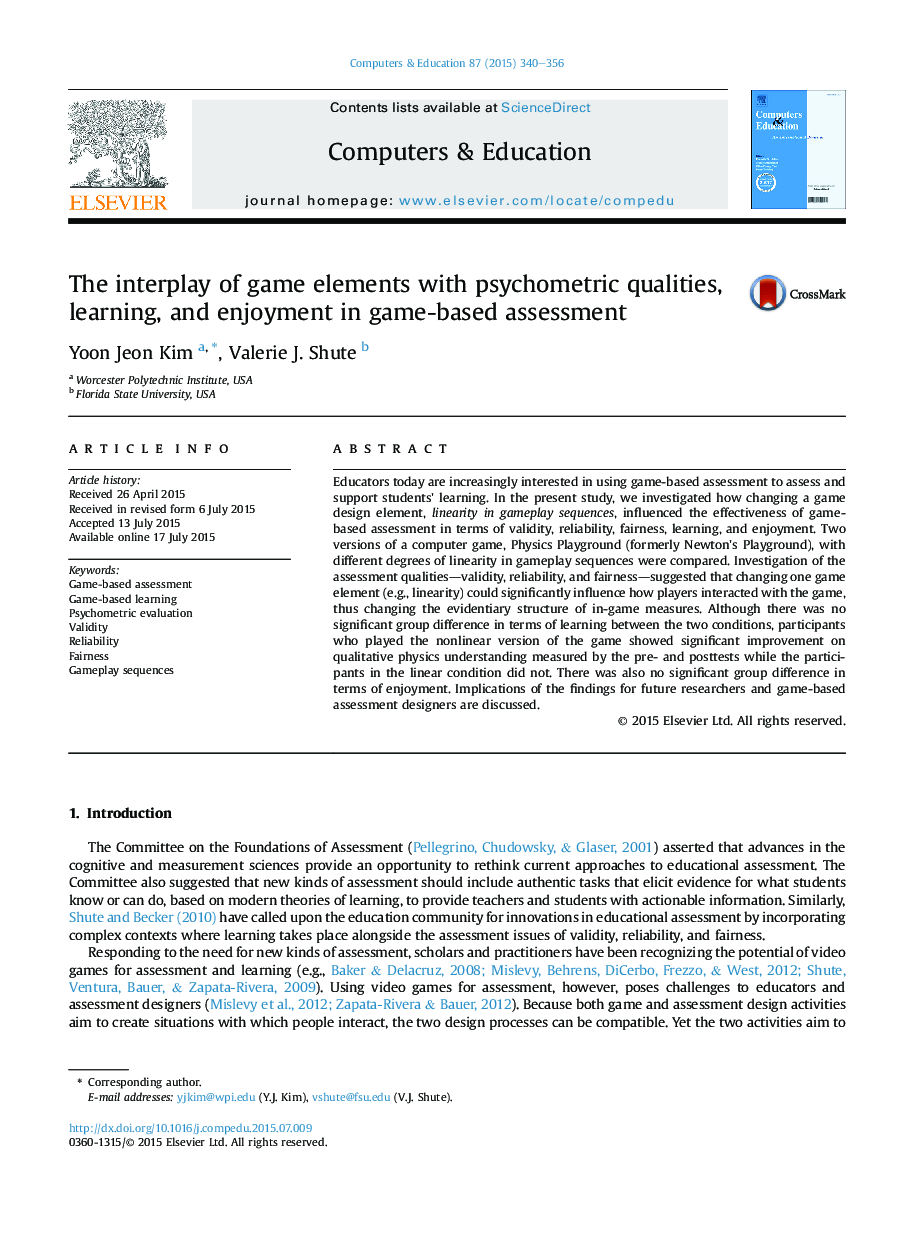| Article ID | Journal | Published Year | Pages | File Type |
|---|---|---|---|---|
| 6835053 | Computers & Education | 2015 | 17 Pages |
Abstract
Educators today are increasingly interested in using game-based assessment to assess and support students' learning. In the present study, we investigated how changing a game design element, linearity in gameplay sequences, influenced the effectiveness of game-based assessment in terms of validity, reliability, fairness, learning, and enjoyment. Two versions of a computer game, Physics Playground (formerly Newton's Playground), with different degrees of linearity in gameplay sequences were compared. Investigation of the assessment qualities-validity, reliability, and fairness-suggested that changing one game element (e.g., linearity) could significantly influence how players interacted with the game, thus changing the evidentiary structure of in-game measures. Although there was no significant group difference in terms of learning between the two conditions, participants who played the nonlinear version of the game showed significant improvement on qualitative physics understanding measured by the pre- and posttests while the participants in the linear condition did not. There was also no significant group difference in terms of enjoyment. Implications of the findings for future researchers and game-based assessment designers are discussed.
Related Topics
Social Sciences and Humanities
Social Sciences
Education
Authors
Yoon Jeon Kim, Valerie J. Shute,
